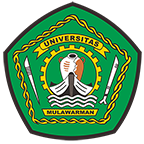ESG: Criteria 2.6

2.6 - Learning Resources and Student Support
Universitas Mulawarman (Unmul) is committed to ensuring the availability and continuous improvement of learning resources and student support systems to enable academic success and holistic development for all students. The Magister Pendidikan Bahasa Inggris (MPBI) program benefits from university-wide infrastructure and targeted support services aligned with national standards and evolving international benchmarks.
1. Learning Resources (Libraries, Digital Tools, Labs)
Learning resources at Unmul are provided through a combination of physical and digital infrastructures. The university maintains a central library and digital repository, accessible to students and faculty through the Unmul Digital Library Portal. MPBI students benefit from access to national academic databases (Garuda, Sinta, Neliti) and digital content available through Perpustakaan Nasional (Perpusnas). Access to international academic databases, however, remains limited. Library resources are periodically updated, and Unmul collaborates with other universities for interlibrary loan and journal sharing agreements (Annex 9.1 – Library Access Agreements and Portal Screenshots).
The Learning Management System (LMS) used by the university supports asynchronous learning and digital content management. Lecturers in MPBI use the LMS to distribute learning materials, assess student work, and facilitate communication. The Academic Information System (SIAKAD) is also integrated to manage course registration, grade input, and academic tracking. The university further supports digital learning through the use of online platforms such as Zoom and Google Meet, particularly for hybrid and online classes.
While digital tools are generally functional and accessible, access to premium international academic databases like Scopus, JSTOR, and EBSCO remains restricted due to licensing costs. Additionally, laboratory facilities—though more advanced in STEM and Health Sciences—are not optimized for programs like MPBI that rely on research labs for language testing, media production, or discourse analysis. These constraints have been highlighted in internal quality reviews.
To address these challenges, the university has included resource development in its academic strategic plan. The MPBI program has submitted specific proposals to improve international journal access and to upgrade seminar rooms with smart technology for hybrid learning (Annex 9.2 – MPBI Resource Development Proposal and Infrastructure Needs Assessment). University management has expressed commitment to gradually expanding journal subscriptions and modernizing classroom facilities across all faculties.
2. Student Support Services
Unmul provides a wide range of student support services that cover academic guidance, career development, mental health, and personal well-being. Each student is assigned an academic advisor (dosen wali) who provides semesterly academic counselling, assists with study plan development (KRS), and monitors thesis progress. This system is in place across all study programs, including MPBI, and is one of the key supports for student retention and timely graduation.
The Career Development Center (CDC Unmul) offers structured programs to help students prepare for professional life. These include resume-building workshops, job fairs, career counseling, and access to employment databases. MPBI students are encouraged to participate in CDC programs, especially in preparation for employment in education, public service, or international sectors. Records of these services are documented in Annex 9.3 – Career Development Center Reports and MPBI Student Participation Records.
Unmul also operates a dedicated Student Counseling Unit to provide mental health and psychosocial support. Services are available for both undergraduate and postgraduate students and include individual counseling, group therapy sessions, and awareness campaigns. The MPBI faculty refer students facing academic or emotional stress to these services, especially during the thesis-writing phase or when handling research-related pressure.
Despite the availability of these services, some areas still require improvement. For instance, linkages with international alumni and global career networks remain limited, which constrains job placement opportunities for graduates with aspirations to work abroad or in multinational contexts. In addition, while internship opportunities are available through the MBKM (Merdeka Belajar Kampus Merdeka) initiative for undergraduate students, a structured internship or practicum system for postgraduate programs like MPBI is not yet fully established across faculties.
To address these gaps, the MPBI program is developing partnerships with local education departments, private language institutions, and international NGOs to create internship pathways aligned with the graduate profile. Discussions with alumni have also led to the creation of a graduate tracking system and job opportunity sharing platform. These initiatives are detailed in Annex 9.4 – MPBI Internship System Draft and Alumni Engagement Records.
